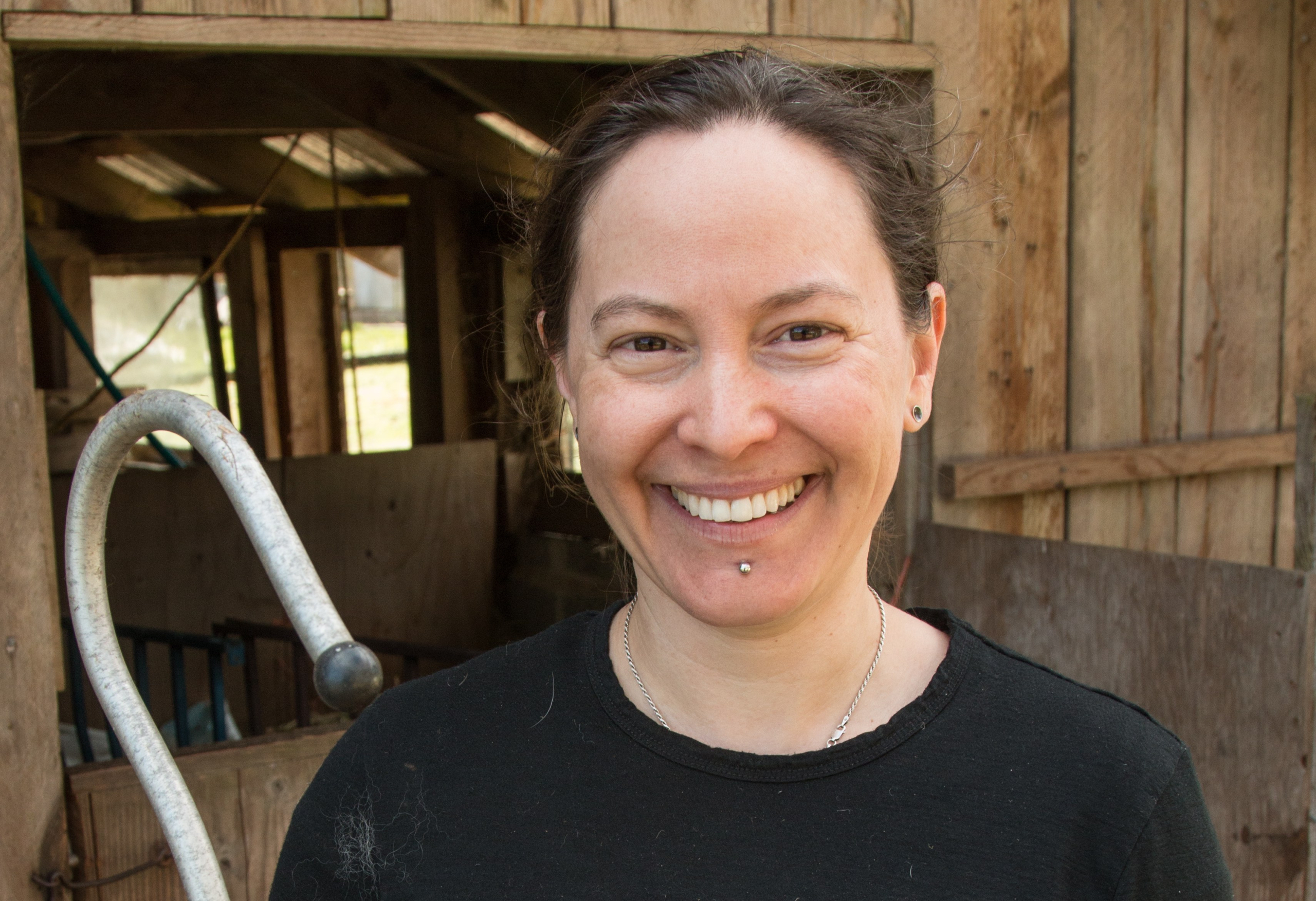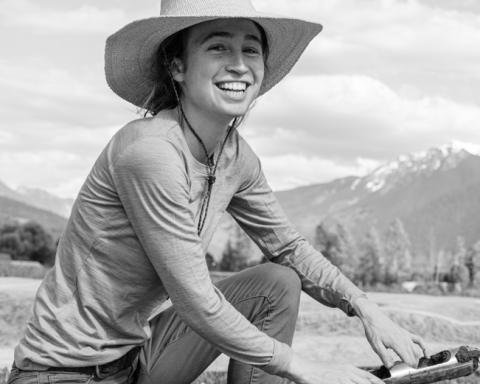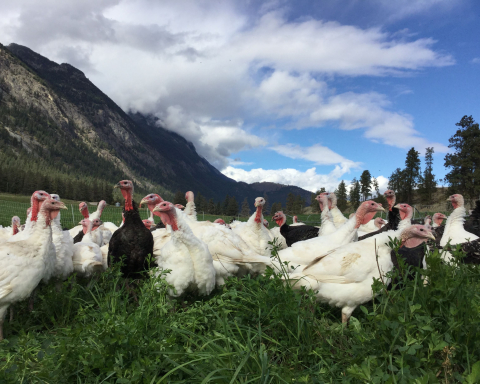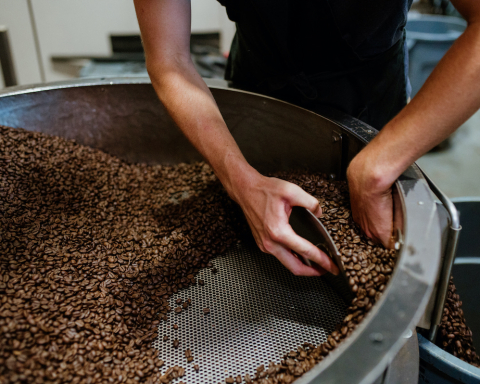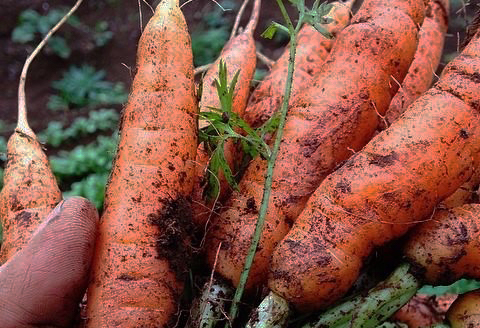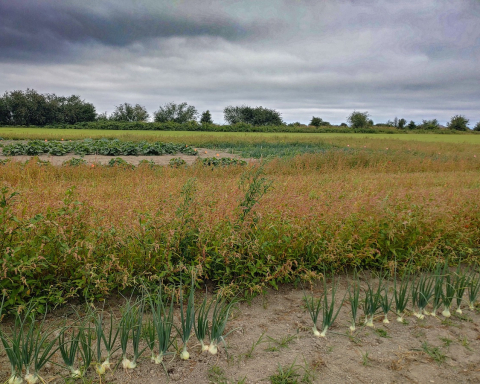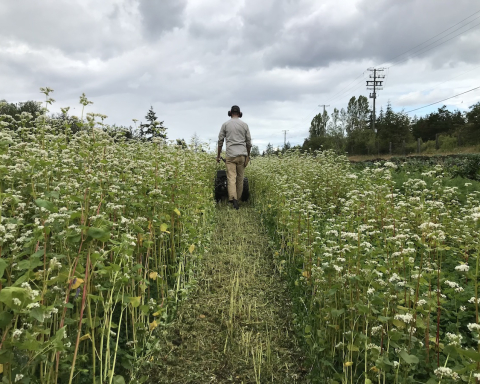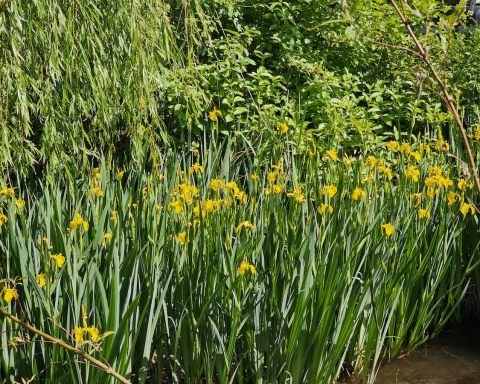By Emma Holmes
As BC’s organic industry specialist, I have been able to meet many members of our organic community across the province. I also get to collaborate with other experts at the Ministry of Agriculture, and am keen to highlight them and the important work they do, so you can get to know them—and hopefully collaborate with them too! This issue, I interviewed Megan Halstead, regional agrologist for South Vancouver Island. Some of you may know Megan from her time as an organic inspector, so it’s my pleasure to re-introduce her.
Emma Holmes: Okay, let’s kick things off – when did you join the Ministry and what is your role?
Megan Halstead: I joined in July 2022 as the regional agrologist for South Vancouver Island. My role involves supporting the agriculture community with knowledge transfer, extension, and events, and helping folks navigate agriculture regulation and provincial resources. I also provide regional context and a producer perspective for folks that are within the Ministry and other related agencies.
EH: I understand you have deep ties to the island and farming. Can you speak a bit to that?
MH: Yes, I do. I grew up on a farm in the Comox valley. My dad purchased a homesteader soldier settler property in Merville and raised sheep and cattle and sold hay, as well as doing all of the extensive homesteading that people do. He had lived through the depression in England and came to Canada and wanted to have food security. So that was kind of a big part of our dinner time conversations we had, you know, orchard and berries and chickens and the vegetable garden. Pretty similar to a lot of the farming operations that were happening in the Comox Valley back in those days.
I returned and farmed there for about 9 or 10 years until recently. I raised broilers and had some sheep as well, all certified organic.
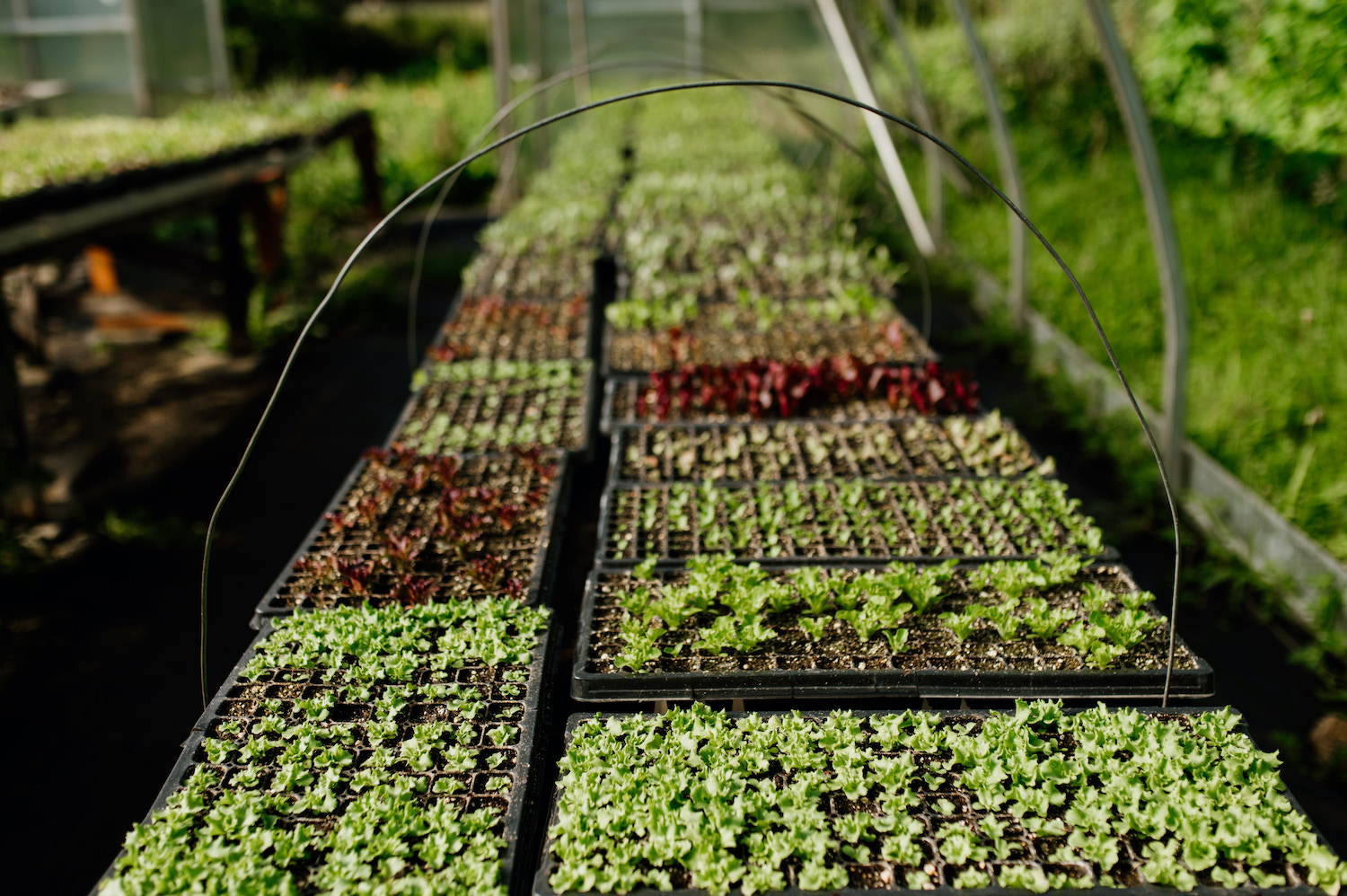
EH: You have a bachelor’s degree from UBC’s Faculty of Land and Food Systems. What were your favourite classes during your university days?
MH: I do have one favourite that surprised me, because I’m sort of an animal person. I took weed science with Dr. Mahesh Upadhyaya and it just blew my mind. It was such a hands-on perspective, providing practical information and also bringing so much more depth to what I already knew about weeds. I feel like it just always comes back to me, like, “Oh yeah, I learned this.” It informed how I farmed and what I notice now when on farms.
I really enjoyed the core Land, Food, and Community classes that everyone in the Faculty takes. It was such a mix of students with different backgrounds, and the material covered everything from food, nutrition, and health, to economics and food policy, to animal nutrition, to agroecology. It was almost exclusively group projects so communication and understanding different perspectives was a big part of it. You would come to the table with a group of people you had never met before and you would all have very different perspectives and backgrounds and have to pull something together in a few weeks. And it would be something that would be unachievable for one or two people to do on their own. You needed the whole team to come together and find a way to get it done.
I lean on the skills I learned in that class in my current role and also when I was an organic inspector. Being able to work with people and achieve something together is so important.
And then wine science with Dr. McArthur. It was the summer class and it was fun and it was also like, wow, viticulture is great, so cool.
EH: You used to be an organic inspector and have visited a lot of farms. How has your previous experience translated into your current role?
MH: I had a lot of connections already and I was very familiar with a lot of the farming community, in the organic sector at least. The community here has been really welcoming to me. The farmers I know have connected me to folks outside of the organic industry and have been really helpful. I did a bit of work outside of the organic industry as well before, so I’ve drawn on that too.
I think this role is primarily making relationships and it really helps that I’ve already known a lot of the folks here and I can build on that those connections which is really great.
As an organic inspector I did a lot of talking with farmers and seeing and understanding what farmers do, the diversity of what people do, the different challenges that they face, and how different types of people can address similar challenges differently.
There are a high number of organic farms here relative to other areas of the island and probably the province. I held a Preparing for Organic Certification Workshop recently on request from a few different folks, and coordinated it through one of the organic farm incubators here. I always wanted to do that when I was an inspector—I was always wishing I had more opportunity to give back and do the education part of it. I was really happy to be able to get Ministry support to do that.
And it has been a benefit to have hands on farming experience having been an organic farmer myself. Smaller-scale mixed regenerative farming is the norm on the island and I can draw on my own experience as well as the wide range of farms I have visited over the years.
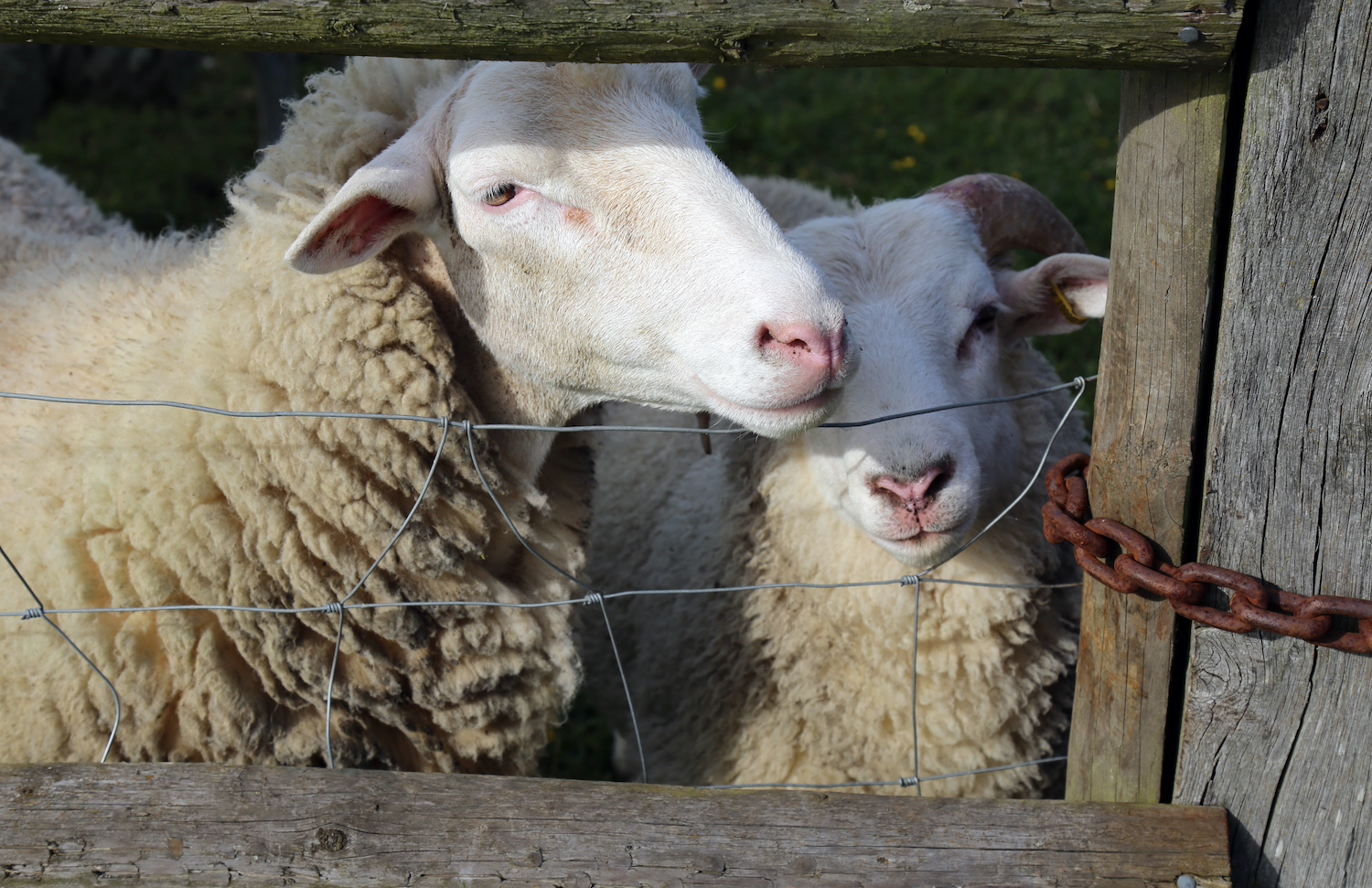
Credit: Acabashi, CC BY-SA 4.0.
EH: Regional agrologists have dynamic and diverse jobs. Can you speak a bit to some of your current projects?
MH: I have a lot in the fire right now. The Ministry has a new five-year agreement with the federal government for agricultural programming funding. I’m very excited about the sustainable focus. And our Ministry had already been advancing regenerative agriculture knowledge and research.
We’ve had some extreme weather and climate events, as well as food security issues with supply chains due to Covid and flooding. On the island in general and on the smaller islands food security has always been something that people are a little bit more aware of maybe than average because we’re so isolated—but the weather and food security stuff was shocking.
And so, the Ministry is really interested in working closely with producers and determining how we can best be supporting farmers with climate change adaptation, adoption of Beneficial Management Practices, and improving provincial food security.
It all comes back to relationship building and communications. I’m still establishing myself in this region and getting to know folks. So that’s a major focus for me. My role is about supporting the agriculture community by finding out what their challenges are and working with them and supporting knowledge transfer.
EH: Final question, what are you most excited about for the upcoming season?
MH: Well, I’ve got a lot of things I’m excited about. I’m definitely excited to get to know more people in the region and about getting more established in the role and being able to help people. That’s what gets me really fired up and excited to do my job every day.
And I’m also really excited about getting to know people more within the Ministry. I just keep discovering, oh, there’s this whole team over here.
I have a soft spot for farm succession planning because of selling my family farm in spite of a lot of coordination over the years and planning and work to try and keep it, so that’s a definitely topic that resonates with me personally and that I would like to work on. I’m also really passionate about animal welfare.
EH: For any farmers who are reading this and want to reach out to you, what is the best way for them to do that?
MH: AgriServiceBC is the easiest way. If you send them an email or give them a call, they will connect you to the correct regional agrologist, industry specialist or resource specialist to help you. agriservicebc@gov.bc.ca or 1-888-221-7141.
And South Island folks can reach out to me directly at: megan.halstead@gov.bc.ca.
Emma Holmes is the Organics Industry Specialist with the BC Ministry of Agriculture and Food. She studied Sustainable Agriculture and Soil Science at UBC, and then farmed on Salt Spring and worked on a permaculture homestead on Orcas Island. She now lives in Vernon and loves spending time in the garden. She can be reached at: Emma.Holmes@ gov.bc.ca
Featured image: Megan Halstead is the regional agrologist for South Vancouver Island. Credit: Amy Crook.


